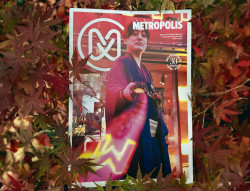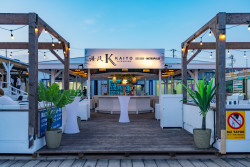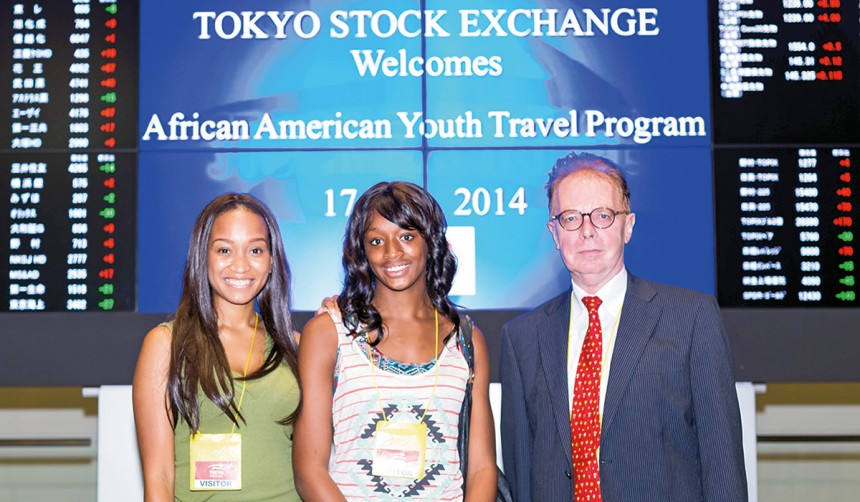
November 25, 2015
The African-American Youth Travel Program
Tokyo non-profit lets U.S. kids go global
It’s said that travel broadens the mind. Those who’ve spent time outside of their home countries can attest to this; their understanding of how the world works expands with each exposure to new people, environments, and ideas.
The African-American Youth Travel Program (AAYTP) believes that showing children different countries and cultures will help them become confident global citizens. And because travel isn’t an option for many children from low-income households, the non-profit organization offers such youths the opportunity to see the world.
“The African-American Youth Travel Program is a full scholarship that we provide to African-American students,” says AAYTP founder and president Amber Richardson. “It’s a full study-abroad scholarship to study in Japan for one week, and we cover all costs. None of our staff are paid, so it’s a fully volunteer-run organization. From passports to gas to the airport, we cover all expenses that are involved with the program.”
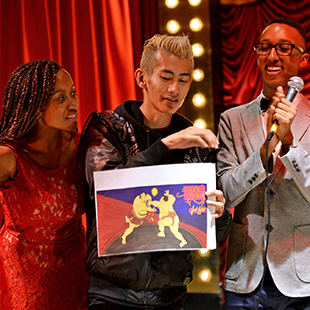
(Photo by Brad Bennett)
The scholarship, which is funded through donations, fundraisers, and crowdsourcing, comprises a curriculum that lasts a full seven days, and is divided into four different aspects: career objectives, cultural activities, social activities, and academic activities. The students have a full set of lessons daily, and enjoy cultural excursions organized and guided by AAYTP staff.
This summer, the two students selected for the program, Micah Leverette and Eugene Anderson, were able to visit Tokyo University and work with doctorate chemists in their labs. They also met officials from the World Health Organization, and learned about the initiatives of WHO and the U.N.
“They also spoke with [Tokyo University] professors in the science department about scholarships that are specific to foreigners,” says Richardson, beaming. “I could see the kids light up. They went, ‘OK, I’m going to get straight As, I’m going to get the scholarship, and I’m going to come back!’”
The program focuses on providing travel opportunities to children of color, which Richardson states is due to racial tensions in the United States, and the sense of hopelessness the kids get from seeing the negative images in the media of black people suffering or struggling.
“It was making me so upset that I felt I had to do something—and because I’m not in the U.S., I thought, how can I provide resources while in Japan?” Richardson remembers, adding that she had hope she could help the U.S. become a more comfortable place to live for everyone. “I’m one person, but I know there’s something I can do to help people, even if I’m changing one life at a time.
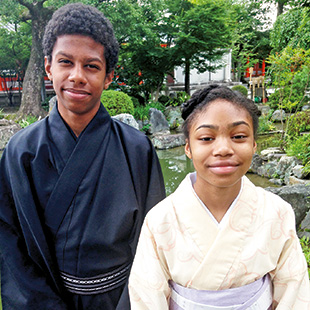
(Photo by Amber Richardson)
“So I thought, I’m in Japan—why don’t I bring over low-income youth? Youth who are struggling to find their path, or apathetic youth, and bring them to Tokyo. Let them see that they’re not stuck in a box in the U.S. And they’re not stuck in whatever the media is showing them that a black person is. They can be whoever they truly want to be by experiencing different cultures.”
The emotional and mental impacts of traveling are what Richardson has experienced first-hand, having had a parent in the military and relocating around Europe, Asia, and South America.
“I feel that travel can provide kids with a broader perspective, and give them problem-solving skills, give them hope. The job market will become the same way—there’ll be more expats, more traveling, more inclusion. I think that, for youth, getting that global head start early will definitely benefit them. There are many reasons why travel is the answer.”
Richardson’s vision for AAYTP, however, extends beyond the travel scholarships. She hopes the non-profit builds a strong support for and within the community of people of color, and that it contributes to making the U.S. a better nation.
“It’s bigger than just African-Americans, I believe. We have to reach a level of justice where people feel like they count, and they’re not stuck in a box. And that not only do they feel they’re able, but that they’re safe. My overall [vision] is for black youth to feel global, to feel confident and comfortable in their communities. That we’re really working together and supporting each other.”
The African-American Youth Program
www.facebook.com/AfricanAmericanYouthTravelProgram
AAYTP is crowdsourcing until Jan 16, to fund the 2016 program. To make a donation, visit www.gofundme.com/5fb2qed8.

